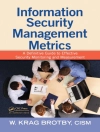Tourism has long been considered a source of social inequality, and as the industry continues to expand rapidly there is an increasing need for a better understanding of its consequences.
Providing a synthesis of tourism as a source of injustice, Tourism and Inequality addresses a wide range of interrelated forms of inequality, investigating its association with class, nation, ethnicity, race, gender, disability and age. Chapters examine routes towards social justice and initiatives that aim to advance poverty alleviation, fair trade, ethics and human rights. The analysis of a wide variety of case studies from around the world allows an exploration into the ways that tourism can be used positively to alleviate the impacts of social injustice. Providing a unique multidisciplinary perspective, the authors aim to lead the way towards a more socially responsible future for tourism practise.
Innehållsförteckning
Part One: Destination marketing and Management: concepts, structures and policies1. Introduction of destination marketing and management: scope and definition 2. Destination marketing/management organizations (DMOs): history, roles, structures and responsibilities 3. Destination policy formulation and planning: process and practice Part Two: Destination marketing and consumer decision making4. Travel motivation, benefits, and constraints to destinations 5. Destination selection/choice 6. Destination information search strategies 7. Experiential consumption and destination marketing Part Three: Destination marketing: positioning, targeting and communicating8. Destination marketing research 9. Destination branding and positioning 10. Destination image development and communication Part Four: Destination product development and distribution11. Destination product development and evolution12. Distribution channels in destination marketing and promotion 13. Destination marketing system development and evaluation 14. Destination recommendation system 15. Web 2.0 and other emerging technologies in destination marketing 16. The role of events in destination marketing Part Five: Managing stakeholders in destination marketing 17. Collaborative destination marketing: alliances, partnerships, memberships 18. Regional destination development and marketing19. Community involvement/Residents attitudes to destination development Part Six: Managing competitiveness and sustainability20. Destination competitiveness and sustainability: concepts and measures 21. Safety and security in destination marketing and management 22. Disaster and crisis management in destination marketing and management23. Destination marketing and management: challenges and opportunities
Om författaren
Derek Hall has studied geography, anthropology and tourism for over 40 years, his experience includes:
1970 BA (Hons) 2i University of London (External): Geography with Social Anthropology
1970-4 Research Assistant, Department of Geography, Polytechnic of North London
1973 Postgraduate Diploma in Linguistics, University of Portsmouth
1974 Temporary Assistant Research Officer, Scottish Development Department, Edinburgh
1974-1995 Lecturer, Senior Lecturer, Principal Lecturer, Reader, Geography and Tourism, Sunderland Polytechnic/University
1978 Ph D University of London (External): Social and Political Geography
1978 British Council Young Scientist in India: Delhi School of Economics; Osmania University, Hyderabad; Centre for Social and Economic Research, Bangalore
1984 British Council funded researcher in Mongolia: University of Ulan Bataar
1986-91 Part-time tour leader for Regent Holidays in Europe and Asia
1995-2004 Head of Department, Tourism and Leisure Management, Scottish Agricultural College, Auchincruive, Ayrshire.
1998 Personal Chair in Regional Development
External examiner at various levels and visiting professor/senior research fellow at a number of universities, including HAMK University of Applied Technology, Finland (1997-2012). Most recent role with Plymouth University.












